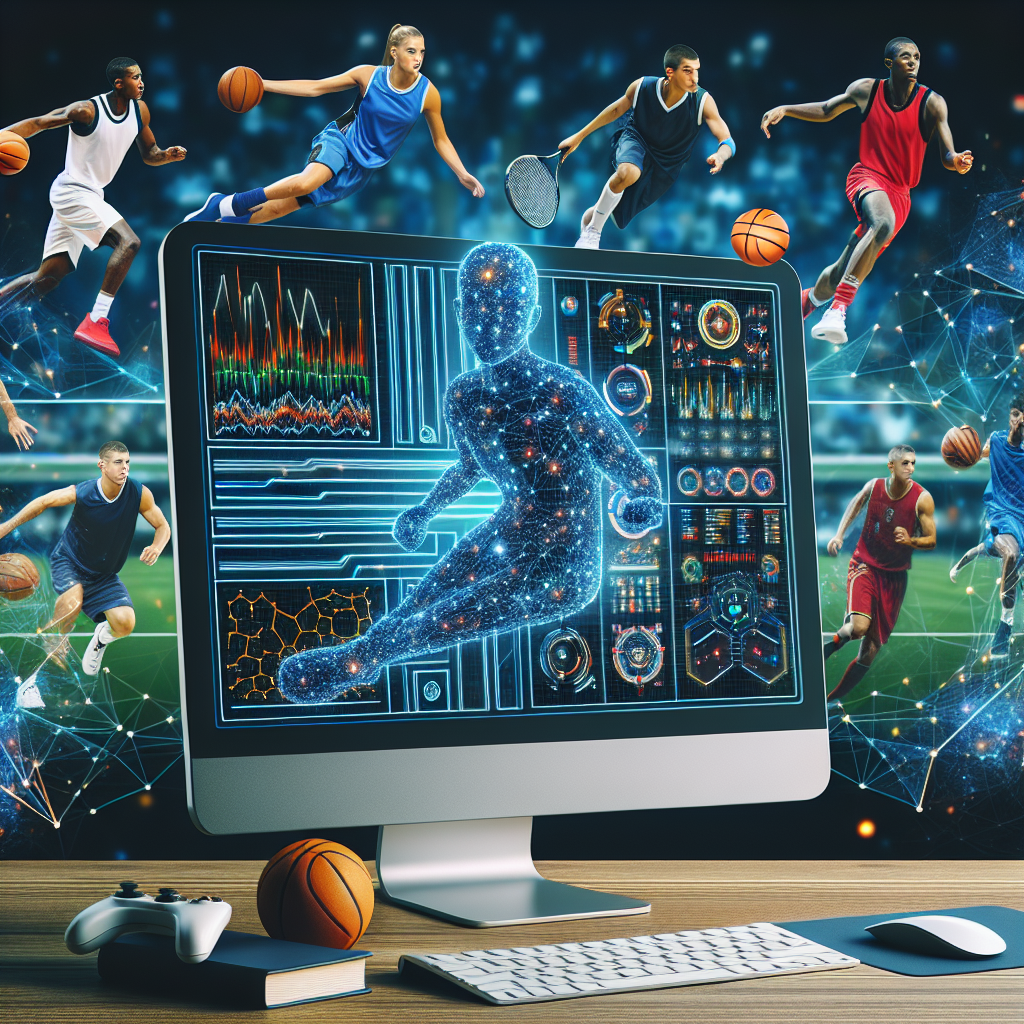In recent years, the use of artificial intelligence (AI) software in sports analytics has become increasingly prevalent. This technology has revolutionized the way sports teams and organizations gather and analyze data to improve their performance and gain a competitive edge. From player evaluation and game strategy to injury prevention and fan engagement, AI software is playing a crucial role in shaping the future of sports analytics.
One of the key areas where AI software is making a significant impact is in player evaluation. By leveraging machine learning algorithms, teams can now analyze vast amounts of data to identify patterns and trends that can help them make more informed decisions when scouting and recruiting players. AI software can analyze player performance metrics, such as speed, agility, and strength, as well as behavioral data, such as work ethic and coachability, to help teams find the right fit for their roster.
Furthermore, AI software can also be used to analyze game footage to provide insights into players’ strengths and weaknesses. By tracking movements and actions on the field or court, AI software can help coaches and scouts identify areas for improvement and develop personalized training programs to help players reach their full potential.
In addition to player evaluation, AI software is also being used to optimize game strategy. By analyzing historical data and real-time game statistics, teams can identify patterns and trends that can help them make more informed decisions on the field or court. For example, AI software can analyze opponents’ strategies and tendencies to help teams develop counter-strategies and adjust their game plan accordingly.
Moreover, AI software can also be used to predict game outcomes and player performance. By analyzing historical data and real-time statistics, AI software can generate accurate predictions on the likelihood of a team winning a game or a player performing well. This can help teams make more strategic decisions when it comes to game planning and player selection.
Another key area where AI software is making a significant impact is in injury prevention. By analyzing player biometric data, such as heart rate, sleep patterns, and hydration levels, teams can identify potential injury risks and develop personalized injury prevention programs to help players stay healthy and perform at their best. AI software can also analyze game footage to identify risky movements and techniques that could lead to injuries, allowing coaches to make adjustments to reduce the risk of injury.
Furthermore, AI software is also being used to enhance fan engagement. By analyzing fan behavior and preferences, teams can personalize their marketing and promotional efforts to better connect with their fans. AI software can also be used to analyze social media data to identify trends and sentiment around the team, allowing organizations to tailor their messaging to better engage with their fans.
Overall, the role of AI software in sports analytics is rapidly expanding, and its impact on the sports industry is undeniable. From player evaluation and game strategy to injury prevention and fan engagement, AI software is helping teams and organizations gain a competitive edge and achieve success on and off the field.
FAQs:
Q: How accurate are the predictions made by AI software in sports analytics?
A: The accuracy of predictions made by AI software in sports analytics can vary depending on the quality and quantity of data available. In general, AI software can generate accurate predictions on game outcomes and player performance when provided with sufficient data and training.
Q: How is AI software being used to enhance fan engagement in sports?
A: AI software is being used to analyze fan behavior and preferences to personalize marketing and promotional efforts. It can also analyze social media data to identify trends and sentiment around the team, allowing organizations to tailor their messaging to better engage with their fans.
Q: How can AI software help in injury prevention in sports?
A: AI software can analyze player biometric data to identify potential injury risks and develop personalized injury prevention programs. It can also analyze game footage to identify risky movements and techniques that could lead to injuries, allowing coaches to make adjustments to reduce the risk of injury.
Q: What are some of the challenges in implementing AI software in sports analytics?
A: Some of the challenges in implementing AI software in sports analytics include data privacy concerns, the need for specialized expertise to develop and implement AI algorithms, and the cost of acquiring and maintaining the necessary technology.
Q: What are some examples of sports teams using AI software in their analytics?
A: Many professional sports teams, such as the Golden State Warriors in the NBA and the New England Patriots in the NFL, are using AI software to enhance player evaluation, game strategy, injury prevention, and fan engagement. These teams have seen significant improvements in their performance and results as a result of implementing AI software in their analytics.

